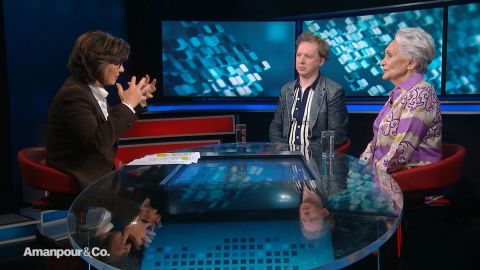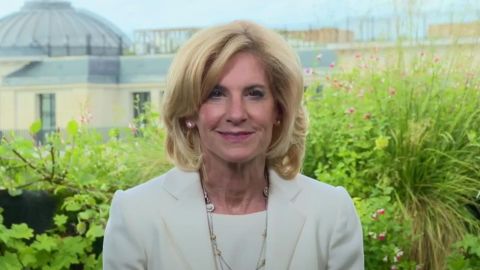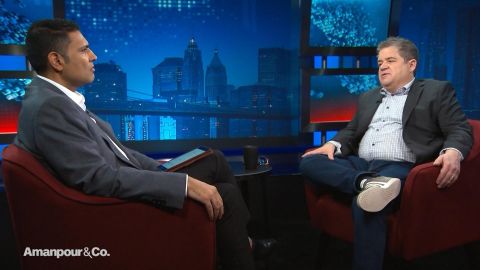Read Transcript EXPAND
CHRISTIANE AMANPOUR: So, look, Nureyev, for people a certain era, is the symbol of the greatest ballet dancer we’ve ever known. But for people who don’t know and the people who will watch it today, a whole generation has grown up not knowing who he was, why did you decide to make this film about him?
DAVID MORRIS, DIRECTOR, “NUREYEV”: Because he’s reached that point where people of a certain generation, everybody knew who he was, everybody thought he was one of the greatest stars in the world, whether it was in dance or anything, really. But because dance is ephemeral, after he died, he sort of slipped away from public consciousness, and we thought it was a challenge to bring him back, you know, and really show what a huge person he was, such a huge personality and such a big talent.
AMANPOUR: You know, you talk about a huge personality, I’m going to ask you because you did actually meet him.
DAME SIAN PHILLIPS, NARRATOR, “NUREYEV”: I did.
AMANPOUR: And did you see him dance?
PHILLIPS: Oh, yes.
AMANPOUR: So, let me read this little review, because it sorts of sums him up. “For a while in the West, he was like Nijinsky meets Mick Jagger meets Salman Rushdie. A freedom fighter in the body of a leaping rock star god.” But that, of course, talks about his defection from the then Soviet Union.
PHILLIPS: Yes.
AMANPOUR: But also, the charisma, the animal magnetism, the sexuality that he projected. What do you remember about Nureyev?
PHILLIPS: Just that.
AMANPOUR: I’m going to be quiet now.
PHILLIPS: Put it better myself. No, that’s exactly what it was like. It was extraordinary to meet him. Even as a young thing, when he had just arrived, before we saw him dance properly, even then he was amazing to meet. And then when I saw him dance, of course, it was extraordinary. And then I met him quite often in that period and it was always very exciting. But very often, one is left with the — after people die, you remember all the things they did that were funny, that were stupid, that were — you know, people are such a mixture of things. And of course, he was great, one knew that. But this film really reminds one of — I was in awe after I had seen it, which I hadn’t been when I was meeting him. I was stunned after seeing it, because it really delivers the greatness.
AMANPOUR: And it’s interesting to hear you say that because you are obviously in your own right a great dramatic artist. I mean, you’re an actress, you perform, you don’t sing and dance like he did but you perform and you know what it takes and you had a huge impact on stage and on screen.
About This Episode EXPAND
Christiane Amanpour speaks with Jamie McCourt about the significance of D-Day; and David Morris & Dame Sian Phillips about “Nureyev.” Hari Sreenivasan speaks with Patton Oswalt about his career and healing grief with laughter.
LEARN MORE


